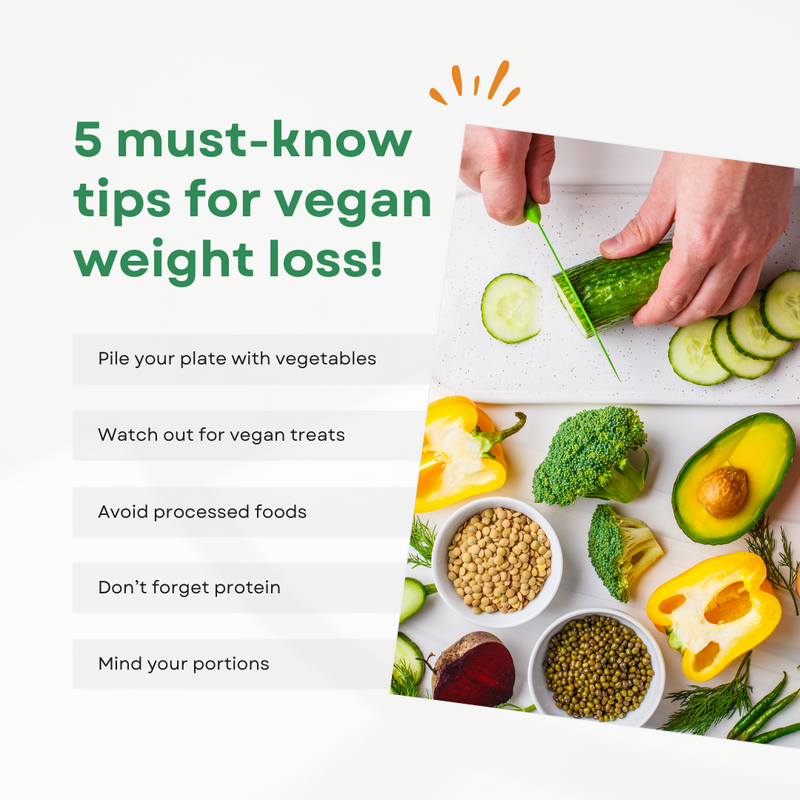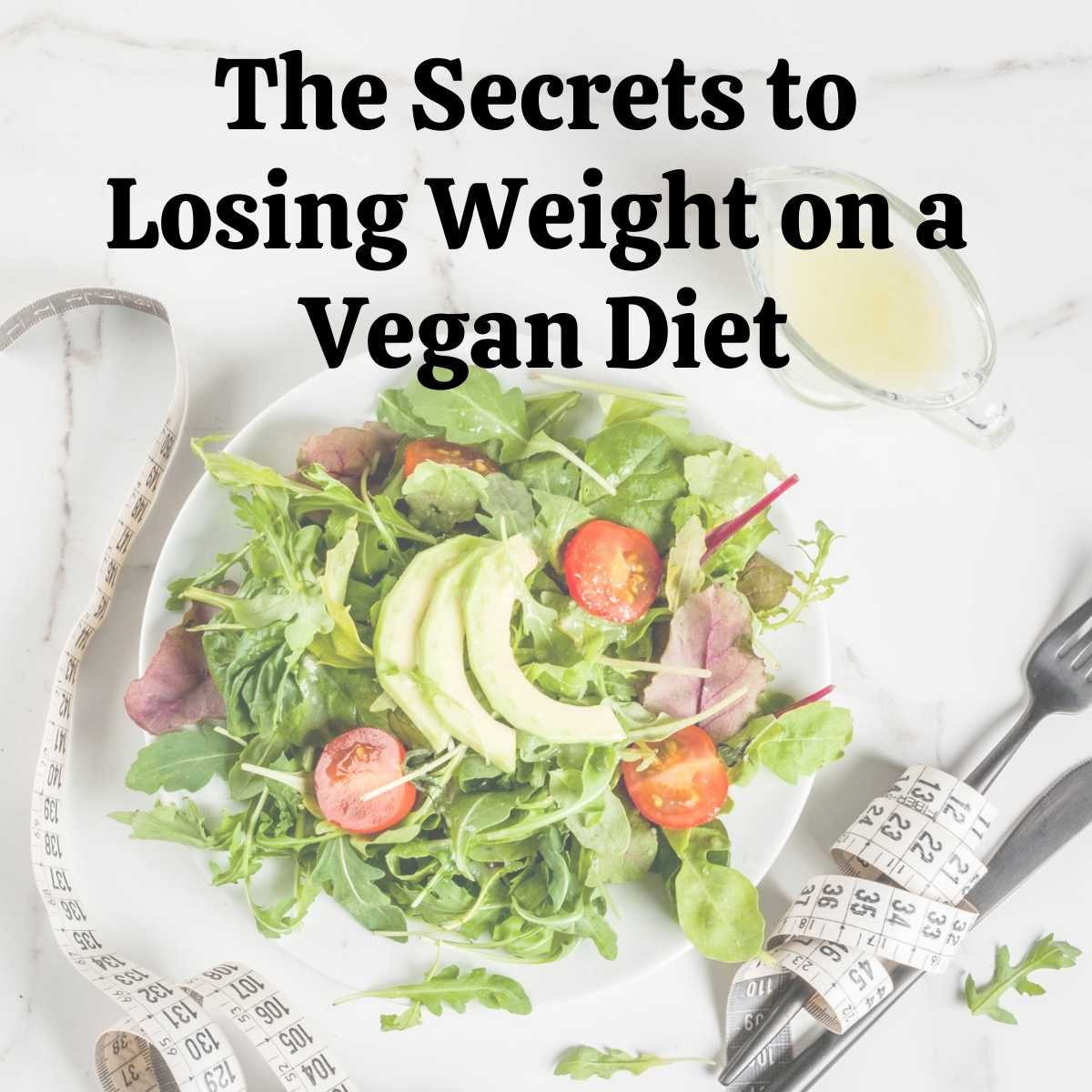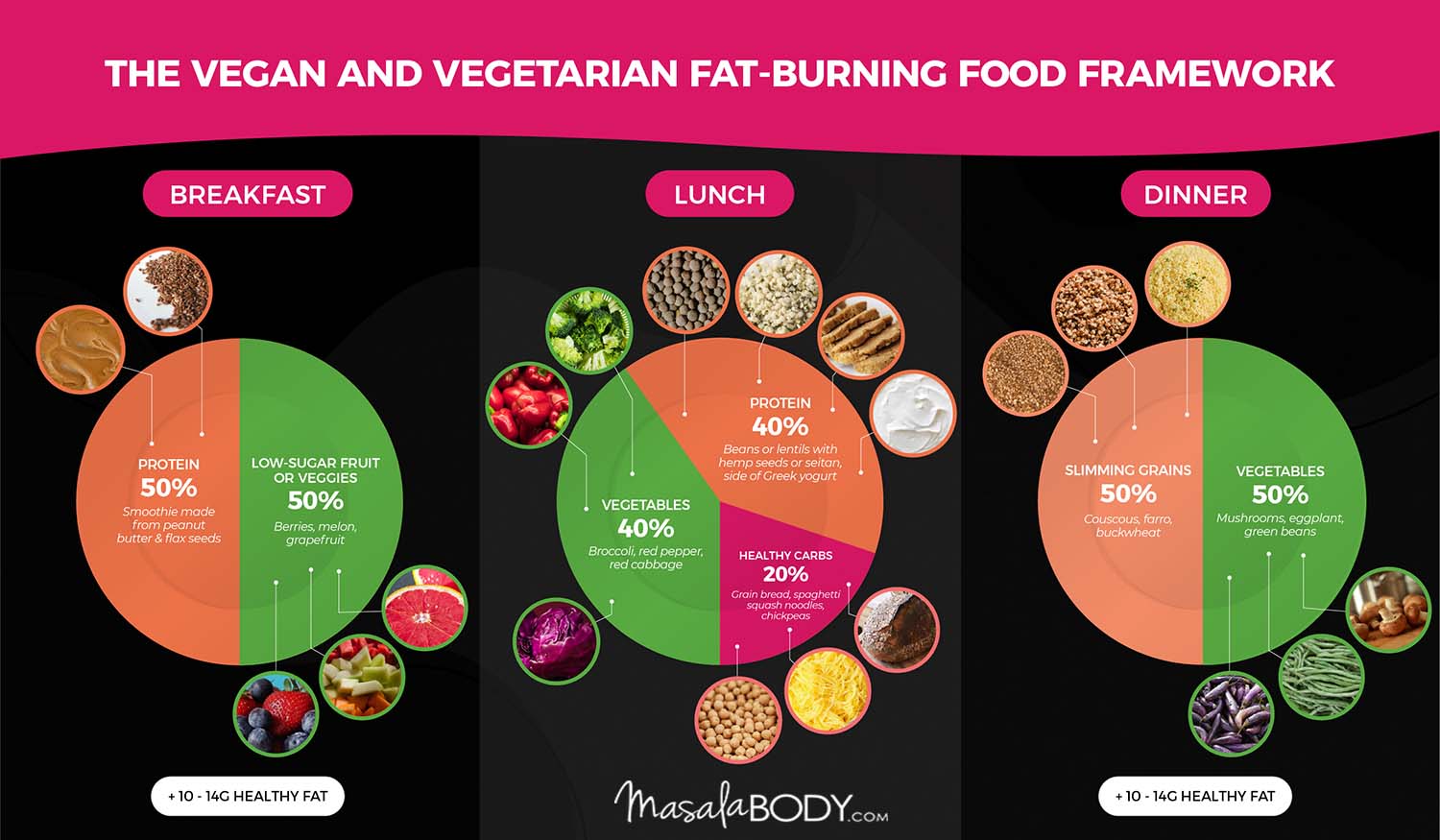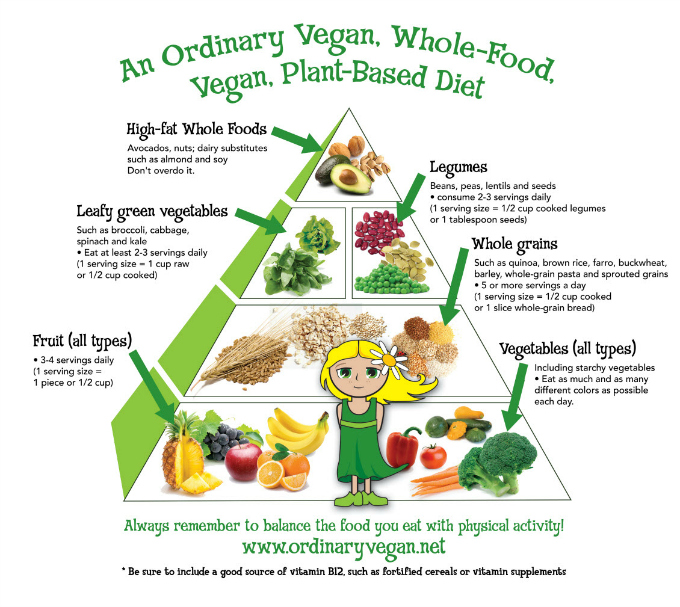Discover effective weight loss tips specifically tailored for individuals following a vegan diet. Optimize nutrient intake, enhance metabolism, and achieve your desired body.
In the quest for effective weight loss, vegans often face unique challenges due to their dietary restrictions. However, with the right strategies and mindset, achieving weight loss goals as a vegan can indeed be attainable. In this article, we will explore a range of effective weight loss tips specifically tailored for individuals following a vegan diet. By implementing these tips, you can optimize your nutrient intake, enhance your metabolism, and pave the way towards a healthier and leaner you. So, let’s delve into the world of vegan weight loss and discover the secrets to achieving your desired body.

Incorporate High-Protein Foods
When following a vegan diet for weight loss, incorporating high-protein foods into your meals is essential. Protein is known to help in building and repairing tissues, promoting satiety, and supporting muscle growth and maintenance. Fortunately, there are plenty of plant-based protein sources available for vegans.
Choose Plant-Based Protein Sources
To meet your protein needs, opt for plant-based protein sources such as legumes, nuts, seeds, and soy products. These sources include beans, lentils, chickpeas, quinoa, chia seeds, hemp seeds, almonds, and walnuts. Incorporating these protein-rich foods into your diet can help you feel fuller for longer and contribute to weight loss.
Include Legumes in Your Diet
Legumes, including beans, lentils, and peas, are excellent sources of protein and fiber. They provide essential nutrients while keeping you satiated. Additionally, legumes offer a variety of vitamins, minerals, and antioxidants that support overall health. Consider adding legumes to salads, soups, stews, and stir-fries to increase your protein intake.
Add Tofu and Tempeh to Your Meals
Tofu and tempeh are versatile and delicious plant-based protein options. They are made from soybeans and are rich in protein, iron, and calcium. Tofu can be used in stir-fries, grilled, or blended into creamy sauces, while tempeh can be marinated and used as a meat substitute in sandwiches, tacos, or stir-fries. Including tofu and tempeh in your meals can offer a satisfying and nutrient-rich alternative to animal products.
Monitor Calorie Intake
To effectively manage weight loss, it’s important to monitor your calorie intake. Calorie requirements vary depending on factors such as age, gender, weight, activity level, and overall health. Understanding your specific calorie needs can help guide your daily food choices.
Understand Calorie Requirements
Consulting a registered dietitian or using online calculators can help determine your daily calorie requirements. By knowing your personalized calorie range for weight loss, you can better plan your meals and snacks accordingly. A gradual calorie deficit, typically around 500-1000 calories per day, is generally recommended for sustainable weight loss.
Monitor Portion Sizes
While incorporating nutrient-dense foods is important, it’s also essential to monitor portion sizes. Even healthy foods can contribute to weight gain if consumed excessively. Use measuring cups, a food scale, or visual cues to ensure you are consuming appropriate portion sizes for your goals.
Track Calorie Consumption
Keeping track of your calorie consumption can provide valuable insights into your eating habits. Utilize smartphone apps, food journals, or online calorie trackers to record your meals and snacks. This practice can increase awareness of your overall calorie intake and help you make informed decisions about your dietary choices.

Eat Whole Foods
Emphasizing whole foods is key to maintaining a healthy and balanced vegan weight loss diet. Whole foods are minimally processed, which means they retain their natural nutrients, fiber, and antioxidants. Including a wide variety of fruits, vegetables, whole grains, and fiber-rich foods in your daily meals will offer essential nutrients while keeping you satisfied.
Consume a Variety of Fruits and Vegetables
Fruits and vegetables are low in calories and rich in vitamins, minerals, and dietary fiber. Aim to include a rainbow of colors to maximize nutrient intake. Incorporate leafy greens, berries, citrus fruits, cruciferous vegetables, and other seasonally available produce into your meals and snacks. These plant-based powerhouses will not only support weight loss but also promote overall health.
Include Whole Grains and Fiber-Rich Foods
Whole grains such as brown rice, quinoa, oats, and whole wheat bread or pasta are excellent sources of fiber. Fiber aids in digestion, contributes to satiety, and helps regulate blood sugar levels. By choosing whole grains over refined grains, you can enhance your weight loss efforts while ensuring a steady supply of sustained energy.
Avoid Processed Vegan Foods
While there are many convenient vegan options on the market, it’s important to be mindful of the nutritional content of processed vegan foods. While they may be labeled vegan, they can still be high in calories, unhealthy fats, added sugars, and sodium. Opt for whole food alternatives and reserve processed vegan foods as occasional treats rather than staple items in your diet.
Optimize Nutrient Intake
When following a vegan weight loss plan, it’s crucial to ensure adequate intake of essential nutrients. Some nutrients are more challenging for vegans to obtain, so paying attention to specific nutrients becomes even more important.
Ensure Sufficient Vitamin B12
Vitamin B12 is primarily found in animal-based products, and vegans are at a higher risk of deficiency. To avoid deficiency, include fortified foods or consider taking a vitamin B12 supplement recommended by a healthcare professional. Vitamin B12 is essential for nerve health, red blood cell production, and DNA synthesis.
Include Adequate Omega-3 Fatty Acids
Omega-3 fatty acids play a vital role in heart health, brain function, and inflammation regulation. While fatty fish is a common source of omega-3s, vegans can obtain these essential fats from plant-based sources such as flaxseeds, chia seeds, walnuts, and algae-based supplements. Including these foods in your diet can help ensure an adequate intake of omega-3 fatty acids.
Pay Attention to Calcium and Iron Intake
Calcium is crucial for bone health, while iron is essential for carrying oxygen in the body. Good plant-based sources of calcium include leafy greens, tofu, fortified plant milk, and almonds. To enhance iron absorption, consume iron-rich foods such as lentils, beans, spinach, and whole grains along with vitamin C-rich foods like citrus fruits, bell peppers, and strawberries.

Stay Hydrated
Proper hydration is often overlooked but is essential for overall health and successful weight loss. Water plays a vital role in digestion, metabolism, and the effective functioning of various bodily processes. It’s important to prioritize staying hydrated throughout the day.
Consume Ample Amounts of Water
Aim to drink at least eight glasses (64 ounces) of water per day. Carry a reusable water bottle with you to remind yourself to drink water consistently. Drinking water before meals can also help control appetite and prevent overeating.
Include Hydrating Foods in Your Diet
In addition to drinking water, you can hydrate your body by including hydrating foods in your diet. Fruits and vegetables with high water content, such as cucumber, watermelon, tomatoes, and berries, can contribute to your hydration levels. Soups, smoothies, and herbal teas can also provide hydration while adding variety to your meals.
Prioritize Regular Exercise
Incorporating regular exercise into your weight loss journey is crucial for overall health, fitness, and achieving your desired results. Engaging in both aerobic activities and strength training can help maximize weight loss while improving cardiovascular fitness and building lean muscle mass.
Engage in Aerobic Activities
Aerobic exercises such as brisk walking, jogging, cycling, dancing, or swimming promote calorie burning and cardiovascular health. Aim for at least 150 minutes of moderate-intensity aerobic activity or 75 minutes of vigorous-intensity aerobic activity each week. Find activities that you enjoy and are sustainable in the long run to increase adherence.
Incorporate Strength Training
Strength training exercises, including bodyweight exercises, weightlifting, or resistance band workouts, help increase muscle mass and boost metabolism. By increasing muscle mass, you can enhance your body’s ability to burn calories and fat, even at rest. Aim for two to three strength training sessions per week, targeting different muscle groups.
Find Physical Activities You Enjoy
To maintain long-term adherence to an exercise routine, it’s important to find physical activities that you genuinely enjoy. Explore different activities such as hiking, yoga, Pilates, martial arts, or team sports. By incorporating activities you love, you’ll be more likely to stay consistent and reap the benefits of regular exercise.

Plan and Prepare Meals
Planning and preparing meals in advance can be a game-changer when it comes to maintaining a healthy vegan weight loss diet. By dedicating time to meal planning and prepping, you can ensure that nutritious options are readily available, making it easier to stay on track with your goals.
Create a Meal Plan
Start by creating a weekly or monthly meal plan that includes a variety of balanced and satisfying meals. Consider your calorie requirements, macronutrient goals, and personal food preferences when designing your meal plan. Include a mix of protein, whole grains, fruits, vegetables, and healthy fats to create a well-rounded and satisfying menu.
Prep Meals and Snacks in Advance
Once you have your meal plan, dedicate time on weekends or evenings to prepare meals and snacks in advance. Wash, chop, and portion out vegetables, cook grains, and prepare protein options beforehand. This will save time during busy weekdays and ensure that healthy options are readily available, reducing the likelihood of relying on convenience or fast foods.
Pack Lunches and Snacks for Work/School
Packing your own lunches and snacks allows you to have control over the nutritional content of your meals. Invest in reusable containers and bags to transport your food. Prepare balanced meals with a combination of protein, whole grains, and plenty of fruits and vegetables. Packing your own meals also saves money and helps eliminate the temptation to buy unhealthy options during lunch breaks.
Limit Highly Processed Vegan Substitutes
While convenient, highly processed vegan substitutes should be consumed in moderation. These substitutes are often high in calories, unhealthy fats, and sodium, which can hinder weight loss efforts and compromise overall health.
Moderate Consumption of Meat Alternatives
Meat alternatives such as veggie burgers, vegan sausages, and faux chicken products can be tasty and satisfying options. However, they should be consumed in moderation, as some of these products can be heavily processed and contain additives. Opt for whole food alternatives like grilled vegetables, lentil or bean-based burgers, or homemade seitan to reduce reliance on processed meat substitutes.
Choose Whole Foods over Processed Vegan Products
Instead of relying on processed vegan products, prioritize whole food options in your diet. Incorporate a variety of vegetables, fruits, whole grains, legumes, nuts, and seeds for optimal nutrition and weight loss. Experiment with homemade sauces, dressings, and marinades to add flavor to your meals without unnecessary additives or preservatives.
Read Food Labels Cautiously
When purchasing vegan products, be sure to read the ingredient labels carefully. Look for products with minimal ingredients and avoid those that contain refined sugars, unhealthy fats, or excessive amounts of sodium. Educating yourself about ingredients to avoid can help you make informed choices and select products that align with your weight loss goals.

Mindful Eating and Portion Control
Practicing mindful eating and portion control can help foster a healthy relationship with food, prevent overeating, and support weight loss efforts. By being more aware of your eating habits, you can make conscious choices that align with your goals.
Practice Mindful Eating
Mindful eating involves paying attention to the sensory experience of eating, including the taste, texture, and aroma of the food. Slow down and savor each bite, chew mindfully, and listen to hunger and fullness cues. This practice allows you to enjoy your meals more fully, recognize satiety, and prevent mindless overeating.
Avoid Emotional Eating
Many individuals, vegan or not, turn to food as a way to cope with emotions. Recognize the difference between physiological hunger and emotional hunger. Seek alternative ways to manage stress, such as engaging in hobbies, practicing relaxation techniques, or seeking support from friends and family. Developing healthier coping mechanisms can help prevent emotional eating and support your weight loss goals.
Use Smaller Plates and Bowls
A simple yet effective strategy for portion control is to use smaller plates and bowls. Research suggests that using smaller dishware can trick the mind into feeling satisfied with smaller portions. By reducing plate and bowl sizes, you can naturally consume fewer calories while still feeling satisfied with your meal.
Seek Professional Guidance
When embarking on a vegan weight loss journey, it can be beneficial to seek professional guidance. Consulting a registered dietitian who specializes in plant-based nutrition can provide you with personalized advice and support throughout your weight loss journey.
Consult a Registered Dietitian
A registered dietitian can assess your specific dietary needs, create a customized meal plan, address nutrient deficiencies, and monitor your progress. They can also provide guidance on portion control, meal timing, and strategies for overcoming weight loss plateaus. Working with a registered dietitian ensures that you are receiving accurate, evidence-based information tailored to your unique needs.
Consider Joining a Vegan Weight Loss Program
Joining a vegan weight loss program or support group can provide you with additional accountability and motivation. These programs often provide educational resources, meal plans, and virtual support from coaches or fellow participants. Having a community to connect with and share experiences can make the weight loss journey more enjoyable and successful.
Track Your Progress with Expert Guidance
Tracking your progress throughout your weight loss journey is crucial for maintaining motivation and staying on track. A registered dietitian can help you set realistic goals, track your weight, body measurements, and other relevant metrics. They can also adjust your plan as needed to ensure continued progress and help you overcome any obstacles you may encounter.
In conclusion, following a vegan weight loss diet requires careful planning, mindfulness of food choices, and regular physical activity. By incorporating high-protein foods, monitoring calorie intake, consuming whole foods, optimizing nutrient intake, staying hydrated, prioritizing exercise, planning and preparing meals, limiting processed substitutes, practicing mindful eating, and seeking professional guidance, you can achieve your weight loss goals while maintaining a healthy and sustainable vegan lifestyle. Remember to consult with a healthcare professional before making any significant changes to your diet or exercise routine.

